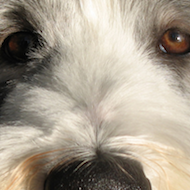
Average claims have topped £600.
With the release of the latest ABI figures, the cost of owning a pet has been highlighted with the average claim on pet insurance topping £600.
In 2013, £478 million was paid out by pet insurers - the equivalent of £1.3 million every day - largely to cover veterinary bills for the treatment of sick or injured cats and dogs. This figure has risen by 24 per cent since 2010.
Almost 800,000 claims were made last year, a rise of eight per cent since 2010. Despite this high number, however, out of the 17 million owners of cats and dogs in the UK, only 15 per cent have pet insurance. This leaves an alarming number of owners still risking the cost of large veterinary bills for their beloved pets.
Figures indicate the average cost of treating a dog inured in a road traffic accident is £674, and £300 for a cat. Spinal surgery for a dog can cost £2,000 and treating a uterine infection will cost around £900. An overnight stay can typically cost £675 for a dog, and £300 for a cat.
Along with claims for cats and dogs, there have been a number of unusual pet claims including the removal of a mouth tumour from a hedgehog, and the treatment of a ferret with heart disease.



 The Animal and Plant Health Agency (APHA) has updated its online reporting service for dead wild birds.
The Animal and Plant Health Agency (APHA) has updated its online reporting service for dead wild birds.